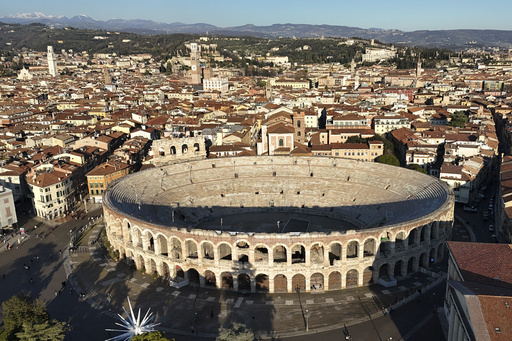
CORTINA D’AMPEZZO, Italy — As the countdown to the 2026 Winter Olympics continues, preparations at the sliding center in Cortina have raised concerns regarding the project’s progress, reminiscent of previous Olympic chaos. With just one year to go until the opening ceremony on February 6, 2026, the site remains in a state of disarray, still awaiting completion.
The International Olympic Committee (IOC) has expressed its frustration over the reconstruction of the century-old sliding venue, which is crucial for hosting bobsled, luge, and skeleton events. Due to the tight timeline, the IOC has insisted on a backup plan that would see these events potentially relocated to Lake Placid, New York, should the Cortina facility fail to meet completion deadlines. Officials are expected to complete pre-certification for the track by the end of next month, yet uncertainty looms over whether it will be approved in time.
Fabio Saldini, the Italian government commissioner overseeing the project, claimed that nearly 70% of the track’s construction is completed amidst the chaos of ongoing work. With a workforce of 180 laborers operating around the clock, the laying of ice on the track is projected to begin in early March. Saldini emphasized the significant backing from governmental and construction sectors as a key reason for optimism about finishing on schedule.
Though the project has only recently commenced, it presents an extraordinary challenge, as no sliding track has ever been completed in such a short span. The German luger Nodar Kumaritashvili’s tragic accident before the 2010 Vancouver Games has added urgency to the need for an official test event set for October.
In selecting a Plan B, Lake Placid emerged as the most financially viable option, providing a track without additional investment requirements. Milan-Cortina CEO Andrea Varnier explained this decision, stating that they had effectively no choice but to secure Lake Placid’s facilities. Meanwhile, the organizing committee’s president, Giovanni Malagò, dismissed concerns over the backup plan as merely precautionary.
Environmentalists have raised objections regarding the ecological impact of the sliding center’s reconstruction, notably citing the removal of approximately 800 trees. Saldini countered that while tree loss occurred, not all were centuries old, and reassured that efforts would be made to plant 10,000 new trees upon project completion.
Ticket sales for the Games are anticipated to begin soon, following an impressive pre-registration phase that garnered over 350,000 requests, with a considerable international demand. Sliding events remain among the more economical attractions at the Olympics, with ticket prices for luge starting at about 40 euros ($42) and bobsled reaching a maximum of 100 euros ($104).
The possibility of relocating the sliding events to Lake Placid has raised questions about the experience for ticket holders. Paul Caine, the president of On Location, pointed out that such a move would transform the atmosphere considerably, as relocating from the sophisticated resort in Cortina to upstate New York is not a trivial transition.
In terms of overall planning, this upcoming Winter Olympics is noted for implementing cost-reduction strategies introduced by IOC President Thomas Bach, prioritizing existing venues which has meant a scattered layout across northern Italy. Events will be distributed among several locations, such as alpine skiing events hosted in both Cortina and Bormio, which are hours apart, while freestyle and snowboard events will take place in Livigno, and biathlon in Anterselva.
Challenges arise from coordinating among the various regions due to their distinct logistical styles, according to Varnier, who highlights the cooperative spirit necessary for the Games’ success. The rich history of many of these locales in hosting significant sporting events provides a solid foundation for the Games, with venues like Bormio and Cortina being well-established within the ski racing world.
Interestingly, athletes could face unique challenges owing to the arrangement of events; for instance, Ester Ledecka, who claimed gold medals in both alpine skiing and snowboarding at the 2018 Games, may find herself in a position of having to choose between competing in two simultaneous events occurring in distant locations.
With the clock ticking and several moving parts at play, the organizing committee remains engaged in a complex balancing act leading up to the 2026 Winter Olympics, seeking to navigate the logistical hurdles while ensuring a successful and memorable Games.

